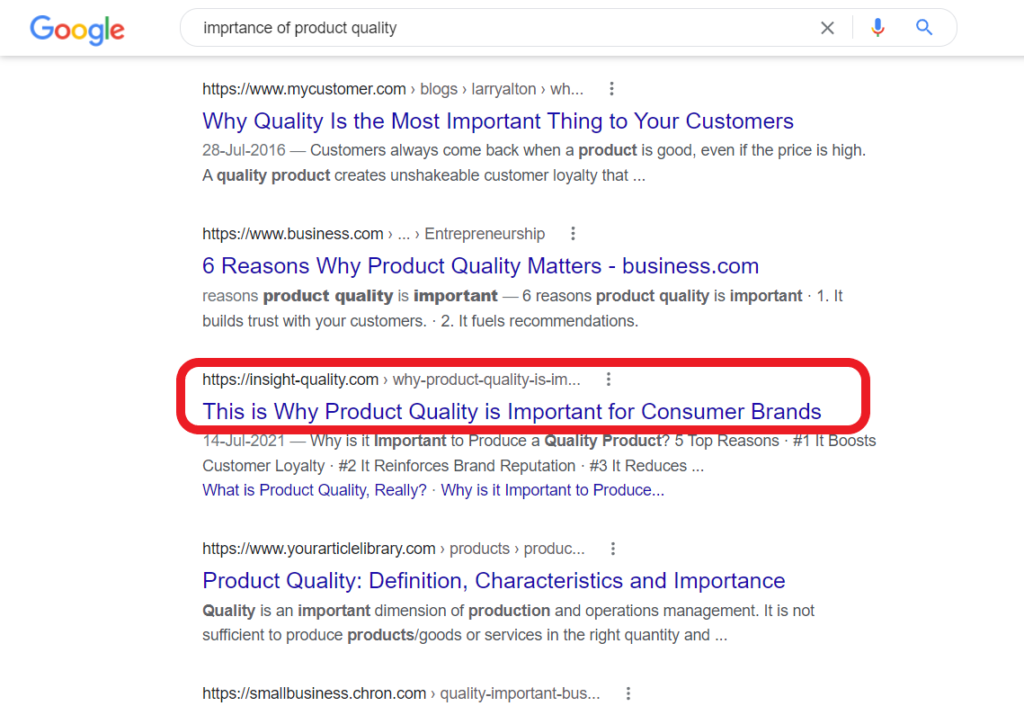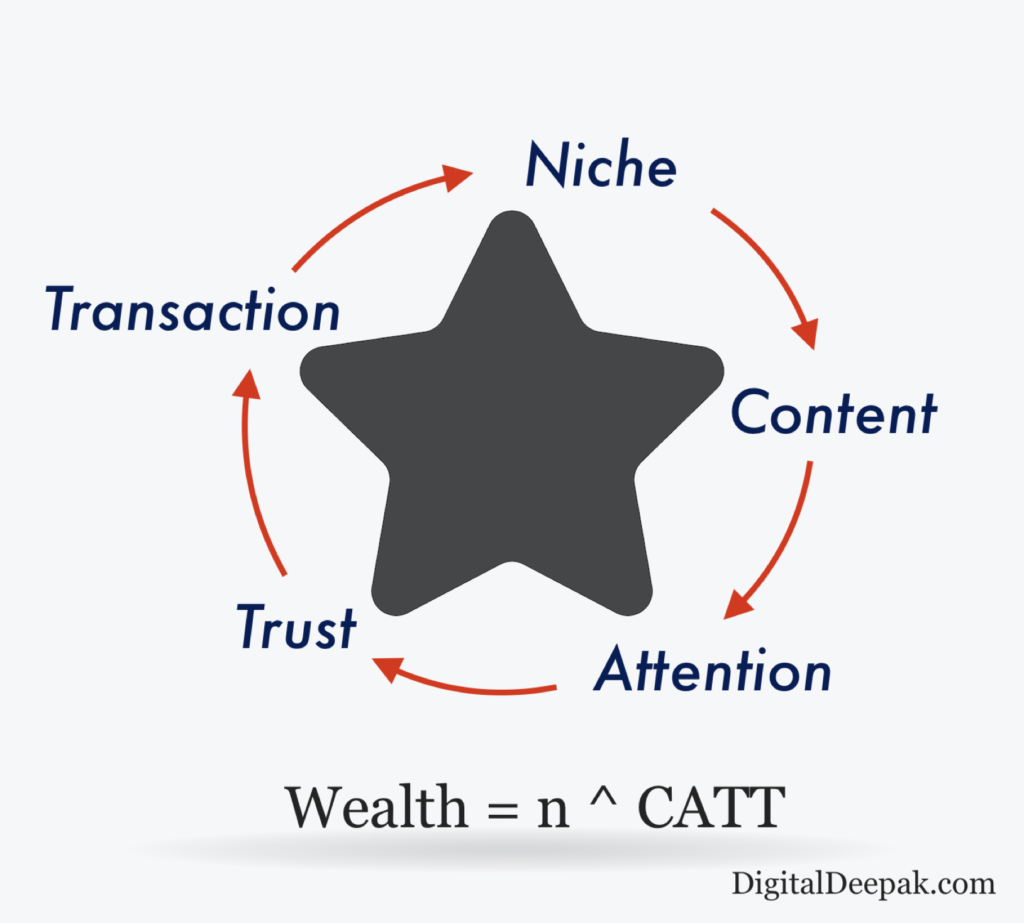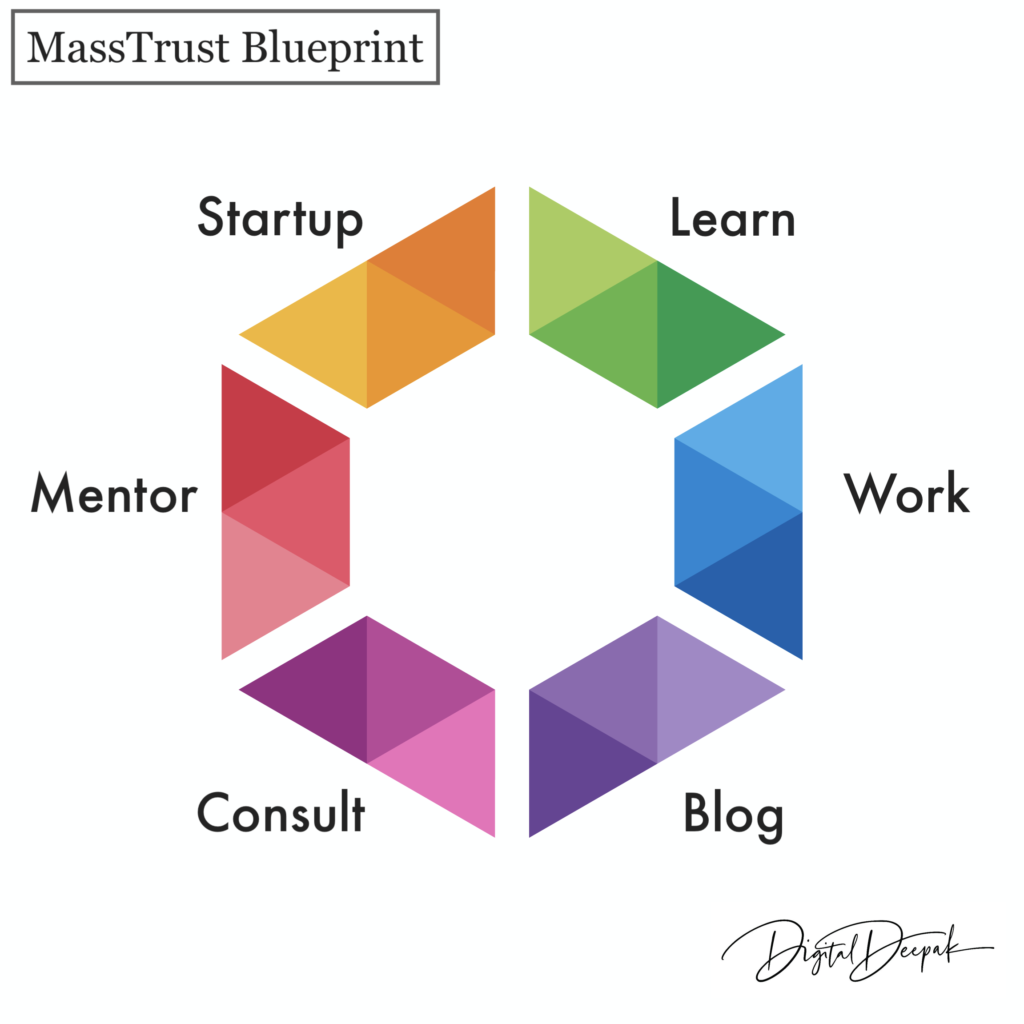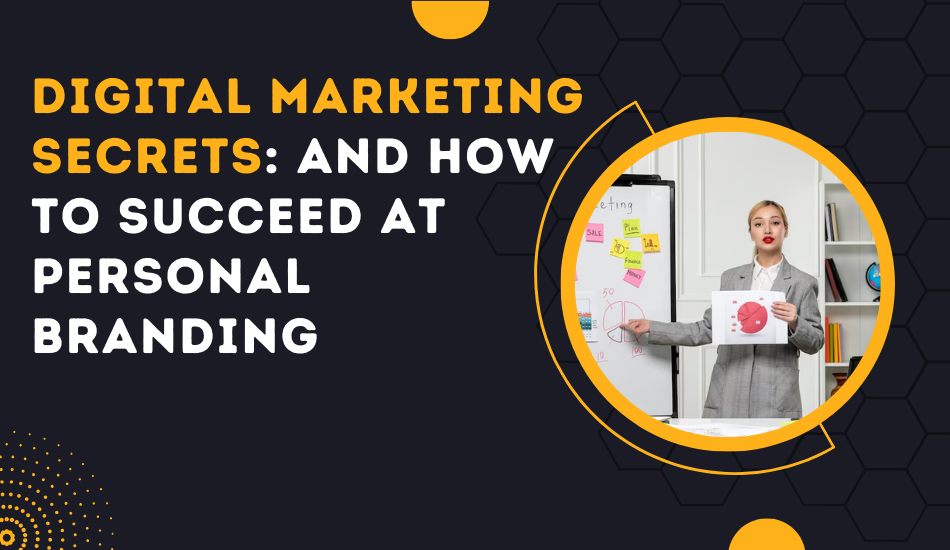Digital Marketing Secrets: And How To Succeed At Personal Branding
Why is digital marketing assuming so much importance today? The answer probably lies in the rapid shift happening globally, from traditional marketing systems to digital marketing. So in this article, we will take a look at insider secrets to digital marketing that will pave a way for successful branding as well.
Eventually, this post is aimed to benefit aspiring digital marketers and bloggers.
A brief pointer here, before we delve further.
According to PewResearch.org the shift toward social media had commenced as early as 2005. At that time about 5% of Americans were into social media. By 2011 the figure had climbed to 50%, and by 2020, social media users count in the USA was touching 72%.
Hence the stage was already set.
Then Covid 19 hit the world in 2020, and it only accelerated the process.
According to 2020 statistics, 1.66 billion people shop online each year, with 78% of internet users specifically researching products online prior to purchase.
I would say that it’s wrong to assume that Covid 19 is the main reason for the rise in digital marketing.
However today we can safely admit that it definitely has become a major factor in impacting the way things are shaping up, the world over.
Let’s take a closer look at the insider secrets of digital marketing.
1.The Fundamentals Of Marketing
For any online marketer, studying the subject of marketing is crucial.
Before we commence, the important question is why should online entrepreneurs study marketing?
Well, the fact is that an entrepreneur is a business owner, whether online or offline.
Eventually, he must be able to stay on top of his game if he has to succeed.
He first needs to have a sale-worthy product. Next, he must ensure it reaches the right customers.
The latter function is marketing.
And here’s the big secret.
You cannot entirely delegate the marketing of your own products to other people. Simply because the product is your own baby, and so is its marketing.
But take heart.
Marketing isn’t such a difficult subject to learn and master.
Yet that’s not all.
The biggest benefit is that it is an evergreen subject. Marketing essentially involves good communications, psychology, and perception study.
So once you grasp these aspects, and apply them well to the actual world, results will invariably remain predictable and favorable.
Most importantly, marketing gives you immediate ROI compared to all other functions of business, whether it is production, HR, accounting, etc.
The Aim Of Marketing
According to Peter Drucker, the aim of marketing is to know and understand the customer so well that the product sells itself and to ensure that selling becomes superfluous.

But here’s the most interesting aspect of marketing.
It’s a science, not a creative practice.
And this is substantiated by Chiefmartec, who says that “Marketing as a science is about objectively using data to support decision making. It’s about understanding how to interpret data — and how to identify common errors or misrepresentations in interpretations. It’s also about critically questioning data, its source, its quality, the context in which it was collected, and alternative interpretations that it supports”.
In a similar fashion, we learn from DigitalDeepak that marketing is about three right actions
Sending the right message, to the right person, at the right time.
However, it doesn’t just abruptly end with that slogan.
Marketing And The Trust Factor
Marketing eventually fructifies into a life long communication with the customer, whereby confidence is constantly reinforced.
Essentially, that is one commodity in acute short supply.
I’m talking about trust here.
No wonder the lack of trust turns off potential customers faster than any other factor. Hence the urgent need to establish mass trust.
The final culmination of excellent marketing is a solid brand, built on trust as well as an epic product.
Which of course brings me to the next point.
And that is the perception factor.
Perception Management And Digital Marketing
A lot of people feel that marketing is all about perception management. Sometimes almost to the point of sounding manipulative.
But here’s the harsh truth instead.
No amount of perception building can substitute for an inferior product. Instead, your product has to deliver exclusive value to the customers.
That is foremost and non-negotiable.

So the quality and value of your product occupies first place, always and every time.And hence you need to know why you must switch to digital marketing.
Only after that is established, can you take the next logical step. That is building perception about the brand.
And once there is enough momentum about the product awareness, a brand is born.
But a brand takes birth only after the product/ service is good enough to blow the customer away.
It has to be that good.
Of course, pushing awareness and perception is crucial too. Otherwise, no one would ever become aware of a star hidden in a remote galaxy.
Components Of Marketing
What a lot of us mistake for marketing is sales.
Or advertising, or copywriting.
However, marketing is not just one of these components. Rather it’s a holistic combination of all three- sales, advertising, and copywriting.
But here again, we need to remember that all marketing functions are subordinate to a great product
A product is always greater than its marketing.
Marketing & Brand Building
According to Investopedia
“The term brand refers to a business and marketing concept that helps people identify a particular company, product, or individual. Brands are intangible, which means you can’t actually touch or see them”.
Eventually, when a product name becomes a verb you can be certain that you’re looking at a shining example of a good brand.
For instance “Xerox” is a product, yet we hear people use the product name as a verb. They say “Let’s Xerox this document” etc.
See how the product name has slowly graduated into an action verb in popular expression?
That’s the power of a brand!
And remember, as a brand leader, customers will run to you. In fact, you don’t even have to be the number one in your niche. You can be the only one.
The only criteria are to consistently fulfill your customer’s needs and to know the audience well.
Communication Skills In Marketing
Any type of business is doomed to fail from the start if it lacks effective communication. Moreover, in the area of digital marketing, excellent communication skills are vital.
And here’s why.
Communication is critical for zeroing on the most appropriate online audience.
The other factor is social networks. They play an important role because they provide an excellent opportunity for customer service.

Now, what’s communication eventually?
Communication is effectively conveying your ideas to the audience, without any ambiguity.
The more you can simplify your idea for the audience the better it is. For both, the sender and the receiver of the idea.
So here’s where we bust a common myth.
Communication has nothing to do with impressive language skills.
Or complex sentences, or high vocabulary, or even perfect grammar. Though they may help, they aren’t vital.
What is of crucial importance is this.
Joining a conversation that is already underway in your audience’s mind.
What that means is that you’re able to assess what your audience wants.
With that done, you can straightaway launch into a dialogue with them, without too much warming time.
You’re able to cut short timelines.
Eventually, this ability turns into an accelerating mechanism that helps you solve customers’ problems, and remove their pain points.
For this, they remember you and recurringly turn to you for future needs, which is what loyalty is.
Now let’s take a peep into traditional vs digital marketing.
2. Digital Marketing Vs. Traditional Marketing.
Traditional Marketing.
Traditional marketing is when marketing activities are carried out in a traditional manner, such as through newspapers, television, radio, and magazines.
Digital Marketing.
Digital marketing refers to the promotion of goods and services through digital channels such as the internet, smartphones, display advertisements, and other digital media. Internet connectivity is the prime necessity here.
Advantages of digital marketing
Increasing Brand Awareness:
Digital marketing assists a company in increasing brand awareness among customers by keeping them informed about new products, special offers, and discounts, among other things.
High Cost-Effectiveness
Small businesses and start-ups with limited capital can find a more cost-effective way to promote their products and services.
Strong Customers Relationships
Digital marketing invariably enhances good customers relationships by:-
1. Using tools such as email, email videos, websites, blogs, smart television, and wireless media.
2. Acquiring new customers through digital communication.
Digital Marketing And Internet Penetration In India
Even though generic products can reach customers through TV, newspaper or radio there is a lot of scope for marketing through a digital medium in India.
Currently, India is still on the lower end of usage versus the potential for digital marketing.
With a vast population of 1.37 bn people, there’s is a huge scope for the growth of digital marketing in India.
As per Aug 2021 figures, this is what Statista.com says about Indian internet penetration:
“Despite the large base of internet users, the internet penetration rate in the country stood at around 50 percent in 2020. This meant that around half of the 1.37 billion Indians had access to the internet that year. There has been a consistent increase in internet accessibility compared to just five years ago when the internet penetration rate was around 27 percent”.

However, the digital scenario is rapidly evolving all across India.
According to a Sep 2021 Economic Times report “India is poised to become one of the largest digital markets in the world and the industry can leverage the high-speed Internet to make the country a fintech innovation hub, commerce, and industry minister Piyush Goyal has said”.
And that’s not all.
By December 2021 the Telecom Ministry had already called for expedited approvals for granting network rollout permissions across the country and has asked secretaries and representatives from states to help expedite the processing of applications.
Hence, we can largely surmise that the state is serious about the rapid acceleration of internet coverage pan-India.
Likely Impact of Digital Marketing In India
So what are we hoping to expect from this foreseeable expansion of digital marketing in India?
Well here’s what we can positively expect with the rapid advance of digital marketing in India.
It will overcome a lot of disadvantages of traditional marketing, like:-
1. Lack of personalized communications.
2. No deep marketing
3. Lack of natural sales.
Plus digital marketing will continue to meet the requirements of the affluent, English-speaking population of India.
Besides that, we could see an increase in direct response marketing in India.
Incidentally, Joseph Sugarman was the brain behind direct response marketing the world over. He was the one to develop the theory of triggers leading to responses, and hence higher ROI.
Now, direct response marketing is unlike traditional marketing.
In direct response marketing, the aim is to elicit an immediate response from prospects. And this is done by encouraging them to take a specific action.
Traditional marketing typically aims to raise brand awareness and promote brand image over time.
However, direct response marketing shows ROI immediately.
3. CATT Marketing Funnel
Interestingly, CATT is a systematic methodology of digital marketing founded on a solid niche.
Hence niche selection assumes top importance in the CATT methodology.
The acronym CATT stands for content, attention, trust, and transaction.
▪Content . Content is the greatest asset you have for attracting your prospects. And usually they want to know what’s in it for them. That is why your content must be beneficial. In fact, valuable content is trustworthy and provides an excellent user experience. It solves a pressing problem, piques interest, or entertains more than anything else. And if all three conditions are met, it is an aim plus. Content is actually the brick and mortar for your online real estate.
▪Attention. You attract attention through a number of methods which include SEO, Social Media, Paid Ads, and Referrals.
▪Trust. Trust is the scarce factor. That’s why it’s in great demand. And now we are also talking about mass trust. In fact, trustworthiness is also a Google EAT factor. Incidentally, you can build trust through actions like trip wires, retargeting, marketing automation, and deep marketing.
▪Transaction. The final point is the transaction stage where a lead is converted into a sale. Here the customer is urged to purchase a product through natural sales processes. Those could be sales pages, video sales letters, and sales calls.

Essentially the mathematical representation of CATT is
Wealth = n ^ CATT
Here “n” represents the niche.
And here’s what is noteworthy.
It’s a logarithmic scale.
Which means everything predominantly revolves around the niche. CATT is a marketing funnel to close sales with prospects, after building trust with them.
Niche Selection For CATT
How do you select the right niche?
Well, a lot of research has gone into the right niche selection over the years. And what emerges from that is that a niche is the convergence of critical factors.
And where the crucial factors intersect each other, is the sweet spot that hits the bullseye.

However, this is where people often go wrong.
They don’t select a specific, narrow enough niche. Or stick to the focus.
Here’s an example.
A digital marketer starts off with content related to the digital world. Then he keeps adding diverse and irrelevant topics like health, fashion, relationships, etc.
What’s the mistake?
They try and be everything to everyone. But unfortunately, it doesn’t work that way
According to Nichehacks.Com
“Before you start a website or business, you should know who you’re targeting and if there’s a high-demand market. This is called “niche research”.Most people fail here as they pick topics that are way too broad and either have them competing for head-to-head against mainstream multi-million dollar brands (you probably can’t win that fight) or they create a website that is too vague and doesn’t appeal to any specific person”.
Factors For Niche Selection
So what are the crucial factors for niche selection?
There are 3 main factors for niche selection:-
1. Talent
2. Market
3. Passion
And here’s what doesn’t work even if you know about the factors:-
Only Talent +Passion.
If you have only talent and passion, but no market then it’s never going to result in profits for you. Your talent and passion may create a great product but that product must be in demand in the market. Otherwise, you merely remain a “struggling artiste” with no income.
Only Passion + Market.
You may have a passion for a particular subject and there may be a viable market ready to buy your product. But your product may be substandard because you lack the talent (skills) to produce a high-quality product. So once again, your product doesn’t sell, and hence no income.
Only Talent +Market.
Now here’s a situation where you have great talent(skill/knowledge) about a subject but it doesn’t excite you. You lack passion for it. So in spite of a viable market existing for your talent, you will gradually lose income, as and when you start getting fatigued due to a lack of passion for your subject.
Here’s what you should consider while selecting your area of expertise.
Hence the moral is to have passion, talent, and a market for your niche to result in profits for you.
4. Integrated Digital Marketing
Integrated digital marketing is exactly what the name indicates.
It is an integration of various methods of digital marketing.

And why do we need Integrated digital marketing, if we already have something like CATT in place?
Well, the answer is more interesting than the question, to say the least.
To quote DigitalDeepak “Integrated Digital Marketing is the art and craft of using all the digital marketing methods available today in such a way that each digital marketing channel complements the other by playing its strengths rather than trying to reach the goal of increasing revenues and customer base on its own.”
Reasons for Integrated Digital marketing
There are a couple of reasons for practicing integrated digital marketing:-
1. The foremost reason is to reinforce the CATT funnel.
2. CATT is an excellent funnel but the drawback is that it’s linear. But integrated digital marketing acts as a framework to overcome CATT drawbacks.
3. The most important advantage of integrated marketing is that it combines various methods of digital marketing.
4. In the integrated framework none of the components are working in stand-alone mode.
5. Integrated marketing framework has a major synergistic impact on the output of the CATT funnel.
6. The integrated framework actually helps in operating the CATT funnel at max efficiency.
Components Of Integrated Digital Marketing
There are a number of components of integrated digital marketing. These are:-
1. Content Marketing
2. Email marketing
3. Paid Advertising
4. SEO
5. Social Media
6. Sales online.

Of all the above components, content assumes the greatest importance because everything revolves around it.
Essentially, if there’s no content then you can forget about integrated marketing.
Now a word about the other components.
As a deliberate aim, the above components achieve 3 major effects:-
1. Attention-grabbing.
2. Trust building.
3. Transaction.
Attention-Grabbing
Attention-grabbing is achieved by :-
▪Paid Ads. Paid advertisements help to expedite the process. The integrated digital marketing process serves as a facilitator for advertisements, enhancing the ROI on money spent.
▪SEO. Search engine optimization has come a long way compared to the initial days when people “fixed” backlinks through dubious means, and thereby gained an unfair advantage. Though backlinks are important , even more, crucial is to generate high-quality content. Eventually quality content itself earns valuable links for your site, hence enhancing the SERP ranks and traffic.
▪Social Media. When you actively engage on social media with your content, it also receives attention extra attention from search engines. That’s because of the social signal factor. The collective shares, likes, and overall social media visibility of a webpage as perceived by search engines are referred to as social signals . These activities, like backlinks, contribute to a site’s organic search ranking and are regarded as another type of citation.
Trust Building.
Email marketing is the easiest way to connect with your audience . According to Mckinsey.com, email marketing is 40 times more effective in acquiring customers than social media like Facebook and Twitter, combined. It’s also an evergreen marketing strategy that’s been shown to build long-term trust. Once trust is established, subscribers are glad to pay you to help solve their problems.
Transaction And Sales
The transaction stage is when you actually close the sale with your audience. This also means putting in the effort at knowing your target audience well . Understanding a customer’s psychological needs is essential for successfully marketing a product or service to them. When you sell a product, you are essentially selling the idea that it will solve a specific problem for the customer.
5. Personal Branding: MassTrust Blueprint
Branding is a method of identifying your company. It is how your customers recognize and interact with your company.
A strong brand is more than just a logo. And it is reflected in everything from your customer service style, to your marketing materials and advertising.

Every business brand is based on the identity that is created for the company and is distinct from any personal name.
Personal Branding
A personal brand, unlike a business brand, is built around you, and your name.
Personal brands are consciously chosen by the person who is that brand.
For example, Elon Musk is a personal brand. But not his companies- Tesla or Space X.
Evidently, Elon Musk is more prominent as a brand than his companies.
How do we say this?
Well, you just need to take a look at social media to find the proof.
Social platforms like Twitter, clearly reflect how Elon Musk outranks his companies in numbers of followers.
I’m sure you’ll also agree with me that most CEOs and business owners have more social media followers than their companies per se.
Now you don’t want to miss the next part.
Personal branding is not a coincidence.
You don’t just get lucky all the way to personal branding.
It takes time, effort, and rigorous promotion of awareness about your brand, before it’s visible on bigger radars.
“Why those pushy promotion methods?” You may ask.
So here’s the deal.
You may be the best in your trade. But no one will suddenly discover that you’re the best unless you tell them that clearly. Particularly when there’s a wide range of players already engaging audiences.
So we conclude that marketing is important for growing your personal brand.
Ok, but why do you need a personal brand, if your product is good enough?
The Need For Personal Brands
The need for a personal brand arises because it happens to be a gamechanger in the long term. How?
Well here goes.
Personal branding is a powerful influencer. Many brands can take birth around a personal brand because of the force-multiplier effect.
The Cambridge dictionary defines a force multiplier as something that increases the effect of a force.
This is exactly what a personal brand achieves for business brands.
For example, DDIP built OptinChat after he was established as a personal brand. His personal brand has a long shelf life and hence more power.
Likewise, even if a business is changed or sold off, a personal brand would continue to bring positive impact in founding new ventures.
Another reason for building personal branding is the potential for multiple benefits like:-
1. Preparing Courses for sale.
2. Having consulting opportunities.
3. Opportunities for networking.
4. Public speaking opportunity to build trust.
5. Building influence and power.
6. Motivating others.
What keeps people from having a personal brand?
Fear of criticism is one of the main reasons that people don’t set up their personal brand.
This is what DigitalDeepak in his post on personal branding says about fear of judgment.
“ Fear of Judgement: People are going to judge you. No matter what you do, there is always going to be a bunch of people who would say nasty things about you. Stay positive and train your brain not to focus on negativity”.
Evolution Of A Personal Brand (Mass Trust Effect)
A personal brand is a gradual process and it grows over time provided it receives the essential ingredients for evolving into one.
If a personal brand is what you’re looking for in your business, then this is the growth ladder:-
1. Learning
2. Working
3. Blogging
4. Consulting
5. Mentoring
6. Owning a startup.

Learning For A Personal Brand
According to Scott Young , the author of UltraLearning, learning is based on triple functions.
1. Facts. These are statistic figures that you must remember.
2. Concepts. These are to be understood.
3. Procedures. Procedures are to be applied in real life.
And this is what my favorite online mentor Brian Tracy says about learning.
“Your first discipline in learning a new skill is for you to resolve to get into the top 10% of everything you do. Remember, everyone who is in the top 10% in your field started in the bottom 10%. Then, they made a decision and disciplined themselves to climb the knowledge and skill ladder of success until they reached the top”.
Working And Implementing Towards Brand Building
Whatever you learn, make sure it finds its way into the world immediately.
You must go out of your way to apply your learning in the real world.
So go out of the classroom, or away from the book, or the webinar. And apply your new learning in the real world.
This practice of immediate application forms new neuropathways in the brain.
In fact, studies in neuroplasticity suggest that new learning continues to enhance the brain’s potential well into adult life.
Blogging And Writing
It’s recommended that we write about whatever we learn as well. Once more, the principle of neuroplasticity is at work.
The more you write about what you learn, the more you sharpen your cognitive skills and analytical skills.
Alice Flaherty, a neuroscientist at Harvard University and Massachusetts General Hospital has studied the effect of blogging on people.

Here are some findings in the ScientificAmerican in connection with that research: “Also, blogging might trigger dopamine release, similar to stimulants like music, running, and looking at art. The frontal and temporal lobes, which govern speech—no dedicated writing center is hardwired in the brain—may also figure in”
Despite the obvious benefits to gain from writing and blogging, there’s a catch.
It’s called uncertainty.
Most people hesitate to start a blog because they feel they aren’t expert enough at their subject. Yet the truth is no one was an expert at anything when they first started off.
And in case you do want to find out your own expertise I recommend some pertinent questions to examine your expertise that you’re unaware of.
But that’s not all.
If you have a personal blog, you also build a personal brand over a period of time. And that has a longer shelf life and multiplier benefits.
Consult For Personal Branding
Once you’ve learned the ropes in your subject, and you’ve applied the concepts in the real world, you must start writing and blogging.
But it doesn’t end there.
Now the stage is set for you to start consulting.
So what do you do?
Provide consulting services to other businesses.
Offer advice to your clients.
Help them overcome their pain points through the experience and knowledge you’ve gained so far. And you could already start earning this way.
Mentoring Services
The next stage is mentoring other clients, who could benefit from your in-depth knowledge and experience.
Mentoring is a two-person relationship with the goal of professional and personal development.

The “mentor” is typically an experienced person who shares knowledge, experience, and advice with a less experienced individual, or “mentee.”
Benefits To The Mentee
Mentees can broaden their knowledge and skills, receive valuable advice from a more experienced mentor, and expand their professional networks.
Benefits To The Mentor
Mentors assist the mentee in becoming the best version of himself.
But the mentor also benefits himself by developing his own leadership skills, improving his communication, and learning new perspectives.
So what’s the difference between consulting and mentoring?
I would say mentoring is 100x consulting.
Interestingly, in the process of mentoring, you actually have the ability to touch the cutting edge in your field or niche.
So what’s my point?
The point is that everybody who aims at having a personal brand must aim to become a mentor to others who’re still struggling in their field.
Own A Start-Up For Personal Brand
Eventually, after you’ve gone through all the grades of learning till mentoring, you must get ready to launch on your own startup.
Remember your personal branding, and launching a startup work hand in hand at this point.
Improving your reputation as a founder does more than just improve the public’s perception of you. As your branding grows, it has a push impact on your start-up as well.
So how do you go about your personal brand?
You apply your personal understanding of:
1. The market
2. The problem you can solve
3. Your own skills.
Related Posts
Strategies To Improve EAT Score For SEO
Why Are Backlinks Important For SEO In 2021 (And Beyond)?
Create Exceptional Content Consistently With These 8 Best Strategies
Conclusion
Globally, there is a rapid shift from traditional marketing systems to digital marketing.
Therefore for online entrepreneurs, understanding marketing is essential since you cannot completely delegate marketing your own products to others. Simply because the product, like its marketing, is your own baby.
Gradually, through repeated communication with the audience, mass trust is built. As a result, the importance of effective communication cannot be overstated.
However, what finally wins the day is your commitment to integrated digital marketing.
The advantage of this framework is the elimination of stand-alone, watertight silos. And the culmination of this process is witnessed in a robust and long-lasting personal brand, that also carries mass trust appeal.
Eventually quality content sits at the heart of, both the CATT funnel as well as the integrated marketing framework.
And that is what we need to get our focus on repeatedly, all along our digital marketing journey.

